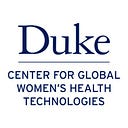Providing Healing, Promoting Hope: 5 Women in Medical History
The theme for Women’s History Month 2022 is “Women Providing Healing, Promoting Hope,” and stands as “both a tribute to the ceaseless work of caregivers and frontline workers during this ongoing pandemic and also a recognition of the thousands of ways that women of all cultures have provided both healing and hope throughout history,” as written by the National Women’s History Alliance.
At GWHT, a woman-led and woman-forward center committed to advancing women in STEM, we exemplify this motto every day through our research and community outreach, and wanted to bring light to some of the amazing women who provided healing and promoted hope by making great breakthroughs in the history of medicine and healthcare.
Metrodora (200–400 CE)
Metrodora was a Greek female physician, and the author of the oldest female authored known medical text, On the Diseases and Cures of Women. Her writing touched on gynecological issues such as speculum use, as well as a variety of general health issues. While little is known about Metrodora herself, her writing has set the stage for women’s health, including the work we do here at GWHT.
Dr. Elizabeth Blackwell (1821–1920)
Despite her British origins, Elizabeth Blackwell is widely known for being the first woman in the United States to earn a medical degree. Despite being faced with hostility and prejudice throughout her journey, she graduated first in her class from Geneva Medical College in 1849. Afterwards, she and Dr. Emily Blackwell (her sister), along with Dr. Marie Zakrzewska, opened the New York Infirmary for Women and Children in 1857.
Dr. Rebecca Lee Crumpler (1831–1895)
After being raised by her aunt who provided medical care to their neighbors and working as a nurse for eight years, Rebecca Lee Crumpler was admitted to the New England Female Medical College in 1860. While most medical schools were not known for admitting Black students, Crumpler graduated in four years, becoming the first African American woman in the United States to receive a medical degree.
Marie Curie (1867–1934)
While Marie Curie is mainly spoken about in relation to the field of physics, she made major advances in the medical field as well. Her work with chemical elements led to the development of the x-ray, which also led to the development of radiation therapy in cancer treatment. She was also instrumental in providing mobile x-ray units for the treatment of soldiers during wartime, and later founded the Curie Institute in Paris in 1920, which stills stands as a cancer research facility.
Rosalind Franklin (1921–1958)
Although she is most widely recognized posthumously for her work with DNA structure, Franklin also specialized in coals, carbons, and virus research. Both her work with DNA and research in viral proteins made major contributions to medicine and healthcare, and also both earned Nobel Prizes in Chemistry after her death.
So many women, not just the five we spoke about today, have made amazing leaps and bounds in the areas of medical research and healthcare. Amazing women before our time, during our time, and amazing women to come have and continue to provide healing and promote hope worldwide today.
Sources:
https://en.wikipedia.org/wiki/Metrodora
https://www.brooklynmuseum.org/eascfa/dinner_party/heritage_floor/metrodora
https://www.britannica.com/biography/Elizabeth-Blackwell
https://www.blackpast.org/african-american-history/crumpler-rebecca-davis-lee-1831-1895/
